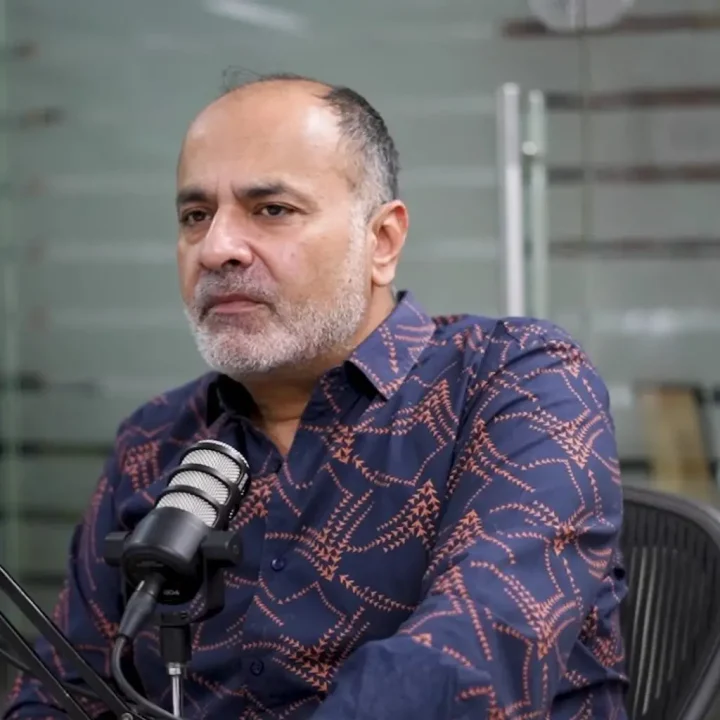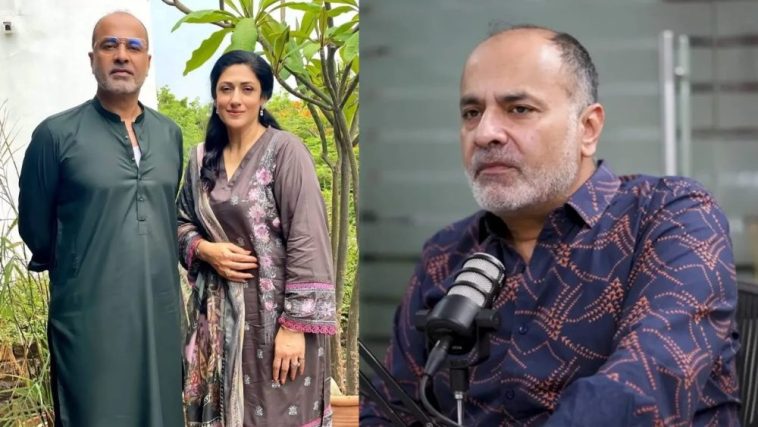Deepak Perwani has cemented his status as a household name in Pakistan, gaining recognition for both his iconic fashion designs and acting skills.
Over the years, he has shaped the country’s fashion and entertainment industries, leaving a lasting impact with his creativity and versatility. As both an artist and a public figure, he continues to influence Pakistani pop culture.
Now, he captivates audiences with his performance in the hit drama Qarz-e-Jaan, further strengthening his presence on the small screen.

Deepak Perwani now focuses on Pakistan’s entertainment industry, criticizing censorship and creative limitations that hinder its growth.
On the DigiTales podcast, he discussed Pakistan’s fashion history, his influential family, and, most importantly, the stagnation of local dramas and films.

While recognizing the global success of Pakistani dramas, he condemned the strict restrictions that limit creative expression. “Our dramas are thriving, but we remain stuck in the past,” he asserted, holding PEMRA responsible for stifling artistic freedom.
He emphasized the industry’s heavy censorship, pointing out that even depicting red blood is banned, making crime thrillers impossible. “Why aren’t true crime stories part of our industry?” he questioned. His concerns extended to romantic portrayals as well—many dramas still prohibit showing a married couple sitting together on the same bed.
These strict restrictions push creators to play it safe, leading to repetitive storylines. Fear of financial loss and backlash forces producers to recycle overused tropes—villainous mothers-in-law, scheming sisters-in-law, and obsessive cousins stirring drama. While shows like Barzakh and Churails tried to break the mold, the industry’s reluctance to take risks slows progress.
However, Deepak didn’t just focus on criticism. As a fashion icon, he shared entertaining career moments. He recalled rushing to replace an actor’s stolen sherwani with one of his own just before a crucial shoot. Laughing, he added, “I had to save the day.” In another instance, an actress refused to dance with the hero’s cousin, demanding last-minute script changes.
As the discussion wrapped up, Deepak addressed broader societal control, arguing that excessive regulation prevents cultural growth. “Without freedom, there is no culture to build!” he asserted.
Ultimately, the real drama in Pakistani entertainment isn’t just on-screen—it’s the battle for creative freedom happening behind the scenes.



GIPHY App Key not set. Please check settings